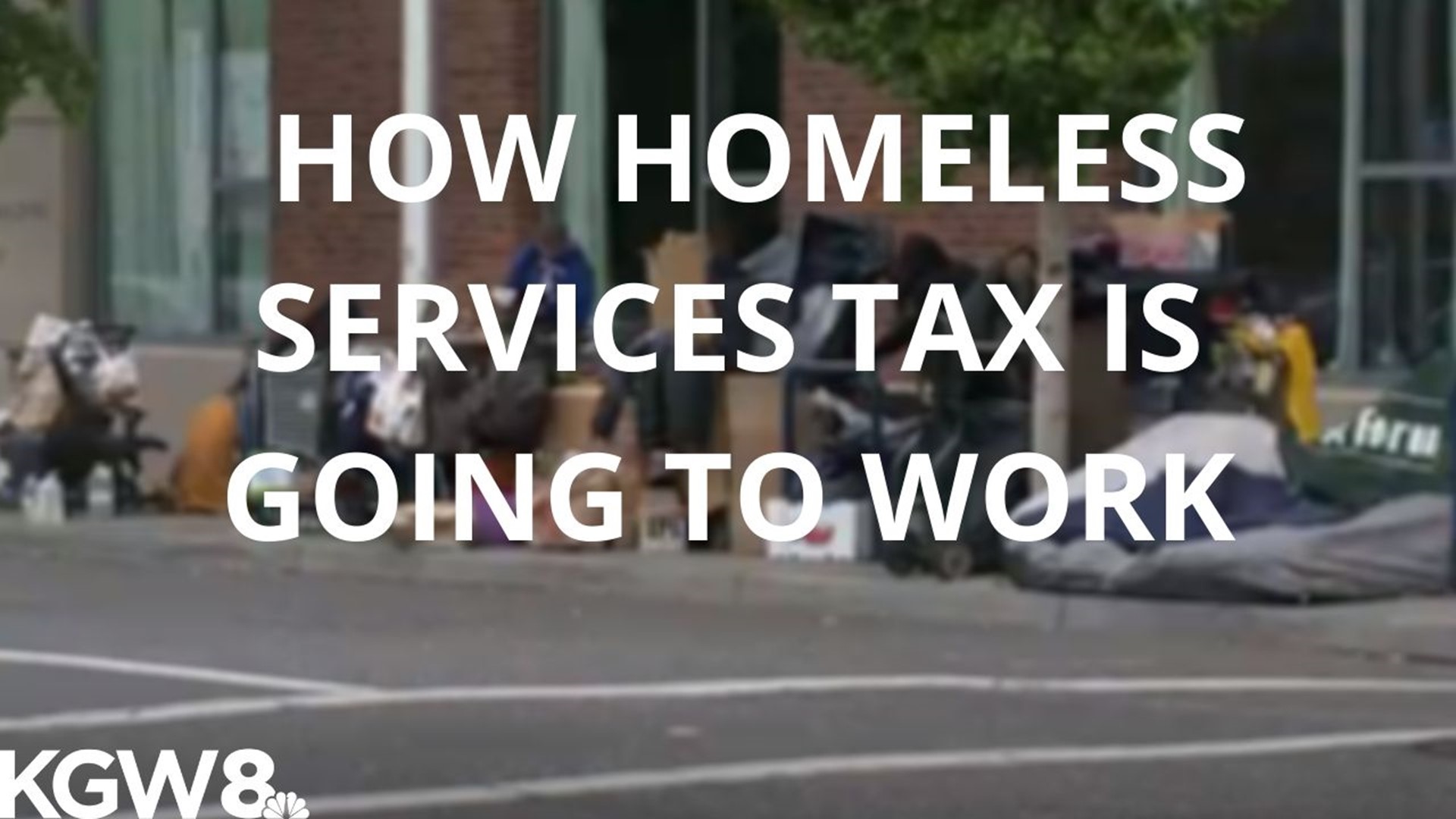PORTLAND, Ore. — On Thursday, less than 48 hours after voters approved their estimated annual $250 million homeless services tax measure, Metro’s council president and Metro staff are planning to meet with local service providers hoping to put that money to use.
“What we're going to be able to do is just tell them a little bit about what progress we've made prior to the election night, which is that we have started conversations with both the state and the city of Portland to figure out who can actually collect the tax and how fast can they get that,” president Lynn Peterson said in an interview Wednesday.
The measure places a marginal 1% tax on individuals making more than $125,000 a year and couples making more than $200,000, meaning the tax applies to their income above that threshold. In other words, a person who makes $126,000 a year would pay a 1% tax on the difference, or $1,000.
The measure also applies a separate 1% tax on businesses that generate more than $5 million a year in revenue.
The funds from the 10-year tax will start rolling in in 2021. Peterson noted because of the pandemic’s economic impact, for the first few years, the total revenue might be lower than the original $250 million estimate.
Before any groups can collect money, they'll have to put in requests through their respective counties: Multnomah, Clackamas and Washington.
Those requests will be considered by special committees made up of government officials, service providers and people who have experienced homelessness. Each county's committee will then bring the requests they've approved to a similar committee at Metro, who has the final say. Peterson said all these groups will likely be formed over the summer.
Currently, the measure allocates funds based on population and need with about 45% of the revenue going to Multnomah County, 33% to Washington County and close to 21% going to Clackamas County.
Those allotments can change year-to-year, based on need and population growth.
“So, as population changes over time, if Clackamas County has a growth spurt and they suddenly grow by 5% … they would get out slightly larger bump up in their allocation,” Peterson said.
It’s worth noting voters in Clackamas County were the lone holdout in outright approving the measure. Unlike their counterparts in Multnomah and Washington counties, they voted against the tax by seven points.
Multnomah County played the largest role in putting the measure over the top, with more than 60% voting in favor of the measure.
Jonny Fisher isn’t surprised by the contrast.
“It costs money to help people,” he said.
In an interview Wednesday, Fisher sat alongside Americo Hernandez. Both men work for Do Good Multnomah, a group that helps homeless veterans across the metro area. A few years ago, staff opened this tiny house village for vets in Clackamas.
They noted the need for homeless services also exists in Clackamas county. In fact, outreach workers tell Hernandez, the director of veterans services for Clackamas, it's growing in light of the pandemic.
“They're seeing people who are experiencing homelessness for the first time; 50 years old, 60 years old, and they'd never thought this would happen and are getting help,” he said.
In turn, Fisher, a program manager, is even more relieved that the measure was passed.
“Regardless of whether it really benefits us as an organization at all, that's kind of a side thing,” he said. “Bottom line is the services are going to be there. Even it's not us. An organization is going to be there to be able to use the funds to be able to help and assist.”

